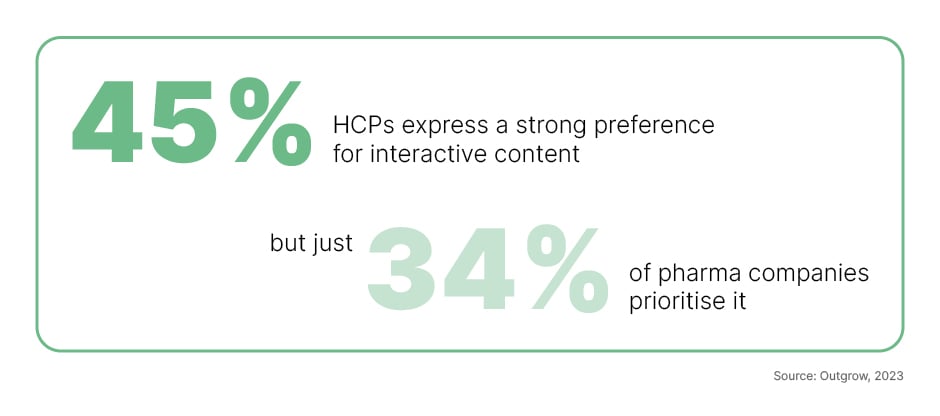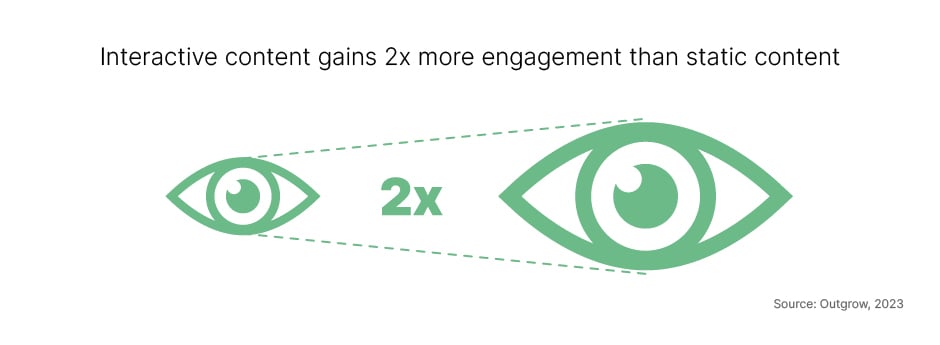If you want to engage HCPs, you must deliver high-quality medical education. But are all companies taking advantage of interactive quizzes as a solution?
Words by Jade Williams
The healthcare landscape of today is rapidly evolving – with pharmaceutical companies ever on the hunt for new and innovative ways to achieve HCP engagement with their content every day. Effectively engaging people with high-quality educational content is more crucial now than ever, with the market growing more and more saturated with each day.
While the market may be saturated, is it saturated with actually engaging and educational content? Not all education initiatives for HCPs hit the mark, and months of effort can ultimately result in poor results for companies. So, how can pharma really harness educational opportunities for HCPs? The answer could lie in a new offering by EMJ – the medical education quiz.
A tried-and-tested method
Among the many tools available for education, from webinars to podcasts, quizzes stand out as a highly effective yet often underutilised method of engagement.
They can offer a myriad of benefits, making them an invaluable asset in any educational toolkit. Unlike passive learning methods, quizzes require active recall, which strengthens memory retention and can help in retaining essential information over a long-term basis. Statistics from the company G2 Learning Hub show this to be the case – with active learning reducing achievement gaps in examination scores by 33%.
Quizzes can also call upon the principles of gamification – transforming learning into an enjoyable and motivating experience. The competitive element—whether it’s challenging oneself or competing with peers—taps into the innate human desire for achievement.

A clear demand
On top of the benefits, there is a clear and increasing demand among HCPs for modular and interactive learning formats. Notably, in a survey conducted by EPG Health, 45% of HCPs express a strong preference for them. Despite this, many pharma companies currently do not prioritise these resources.
While the same study found that 67% of pharmaceutical companies have provided webinars via third-party websites, only 29% have offered interactive learning tools like quizzes. While webinars are a tried and tested winner for HCP education, this discrepancy points to an untapped opportunity for companies to go beyond traditional means.
To this, Dr Jonathan Sackier, Chairman, EMJ, agrees: “Medicine has been taught by the Socratic method, the teacher probing his or her students who respond and provoke dialogue. We remember those interactions forever because of their very nature.” HCPs, while studying to enter the field, are quizzed almost every day – meaning this well-trodden method is already a familiar way to internalise information.
Participation rates also show there is an appetite for quiz-based learning among HCPs. In the same survey from EPG Health, it was found that only 3% of HCPs rarely or never participate in quizzes during educational activities, while 52% regularly use quizzes to test their knowledge. These figures reflect a clear interest in this learning format, with only a minority of HCPs unlikely to take part if given the chance.

Competitive advantage
Interactive formats like quizzes do more than just engage HCPs, they also significantly influence their choice of educational platforms. Notably, 41% of HCPs asked by EPG Health reported that having interactive formats can heavily influence decisions on which sites they use for learning. This means that by helping HCPs put their knowledge to the test in this way, pharmaceutical companies could build customer loyalty to their content.
However, a key concern for pharma companies may be the difficulty of getting people to see the quiz in the first place, with 49% participating in the same survey citing this as a significant barrier. This is where collaborations with trusted educational partners like EMJ can come in. Collaborating with respected organisations that HCPs already trust can help to lend credibility to the content, driving higher engagement from loyal audiences. In fact, 77% of HCPs prefer to use websites from trusted sources when engaging with online providers, further underscoring the effectiveness of third-party hosting.
Help HCPs help patients
Well-informed HCPs are better equipped to make sound clinical decisions, leading to higher-quality patient care. Quizzes, as a component of a comprehensive educational strategy, can play a vital role in achieving this goal. By reinforcing knowledge and promoting active learning, quizzes can help HCPs stay abreast of the latest medical developments and apply this knowledge in their daily practice.
As the healthcare landscape continues to evolve, so too must the strategies used to engage those at its forefront. Quizzes, with their unique ability to transform passive learning into an active, dynamic and engaging process, offer a clear opportunity to bridge the gap between HCP needs and pharmaceutical companies objectives.
“Interactive educational content? Quizzes? Absolutely we want that,” concludes Sackier. Why not take the first step, and start giving HCPs what they actually want from medical education?









